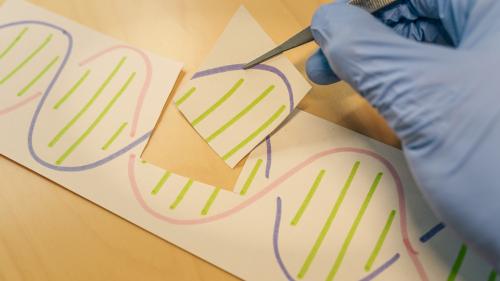
-
Understanding primary immunodeficiency (PI)

Understanding PI
The more you understand about primary immunodeficiency (PI), the better you can live with the disease or support others in your life with PI. Learn more about PI, including the various diagnoses and treatment options.
-
Living with PI
-
Addressing mental health
-
Explaining your diagnosis
- General care
- Get support
- For parents and guardians
-
Managing workplace issues
- Navigating insurance
-
Traveling safely

Living with PI
Living with primary immunodeficiency (PI) can be challenging, but you’re not alone—many people with PI lead full and active lives. With the right support and resources, you can, too.
-
Addressing mental health
-
Get involved

Get involved
Be a hero for those with PI. Change lives by promoting primary immunodeficiency (PI) awareness and taking action in your community through advocacy, donating, volunteering, or fundraising.
-
Advancing research and clinical care
-
Grants
-
IDF surveys
-
Participating in clinical trials
-
Diagnosing PI
-
Consulting immunologist
-
Clinician education

Advancing research and clinical care
Whether you’re a clinician, researcher, or an individual with primary immunodeficiency (PI), IDF has resources to help you advance the field. Get details on surveys, grants, and clinical trials.
-
Grants
While the Primary Immune Deficiency Treatment Consortium (PIDTC) is a multi-faceted organization with many moving parts, one thing is certain – its goal is to improve the lives of those with rare, life-threatening immune system disorders.

Dr. Jennifer Puck, principal investigator for the PIDTC and professor of pediatrics at University of California San Francisco Benioff’s Children’s Hospital, presented “What is the PIDTC?” in November as part of the SCID Compass Lunch & Learn series.
A member of the Rare Disease Clinical Research Network (RDCRN) and funded by the National Institutes of Health (NIH), the PIDTC is a collaboration between 47 immunology and transplantation centers – 42 in the United States and 5 in Canada – and patient advocacy groups.
The PIDTC centers study and treat rare inherited immune system disorders, including Severe Combined Immunodeficiency (SCID), Wiskott-Aldrich Syndrome (WAS), Chronic Granulomatous Disease (CGD), and Primary Immune Regulatory Disorders (PIRD).
The centers are connected to each other and participate in investigator groups. The lead investigator at each one of those sites is on the PIDTC Planning Committee.
“So these sites are fairly hooked in to the latest research, and we’re hoping that they represent a resource for you and for patients in the community who need to get in touch with an immunologist or want to consult with a transplant center,” explained Dr. Puck.
Dr. Puck said that there are not centers located in every state.
“We have to consider how to reach into every corner of the country to provide information and referrals for all patients, but I don’t think it’s realistic to consider that treatment for rare specialized conditions should be available everywhere,” said Dr. Puck.
“I think we have to recognize that there must be centers of excellence that really keep up with the latest and give the patients the best care.”
The PIDTC partners with advocacy groups, such as IDF, for people affected by rare immune system conditions to accomplish the following goals:
- Help prioritize investigations to determine what improvements need to be made in treatment
- Conduct quality of life and outcome studies
- Foster communication between patients, providers, and scientists
- Assist in planning the future of the PIDTC
Among the many accomplishments of the PIDTC is researchers’ efforts to publish 125 papers to date, with five more planned for 2020 and more to be published in the coming years. Informing those papers is an incredibly rich database on determining factors affecting survival and immune reconstitution in the rare conditions studied by the PIDTC.
“Before the PIDTC, nothing like this, no national organization where people caring for the rare disease population, would get together and pool their data and their ideas. Every disease we study is so rare that no one site gets enough patients to make definitive studies or have statistical significance. So, it’s only by banding together that the PIDTC has been able to do big analyses, and we’ve learned a lot of important things,” said Dr. Puck.
Some of the papers produced by the PIDTC focus on newborn screening for SCID and the advantages it provides. Others have examined the genetic landscape of SCID.
“That’s an important contribution because it says SCID isn’t a one size fits all disease, that genotype matters. The different genotypes should actually be treated differently, and we’re now in the process of writing single genotype papers to try to give guidelines for specific treatment for each of the SCID genotypes,” said Dr. Puck.
One of the future goals of the PIDTC is to clean and analyze data. That means that the PIDTC will examine data collected by researchers to ensure there are no mistakes in values, for example, and send queries to researchers if the data looks unusual. Once that project is complete, the findings can be published in additional papers.
“It’s a huge job to do data cleaning, but there is real pay dirt in there because what we’ve done is not just have a single time point, but with CGD and SCID, we have longitudinal studies where we’ve enrolled patients at their diagnosis, and we’ve recorded and collected detailed information about not only immune function but also their quality of life in a very systematic and detailed way. This is why we’re able to say now that patients with X-linked SCID or JAK 3 SCID have better survival than those with RAG or Artemis Deficient SCID,” explained Dr. Puck.
“We’re digging into why that is and realizing that the treatments for these conditions need to be personalized, they need to be tailored to the genotype, and we’re going to be focusing much more on what are the best treatments for each specific gene defect going forward. Obviously, we need to publish these findings so that not only our centers but every center in the U.S. and around the world will be able to act on these conclusions.”
Another future goal, already being worked on by the PIDTC, is to conduct clinical trials for the conditions they are studying. One of those clinical trials is determining the minimal dose of Busulfan (a type of chemotherapy) necessary to achieve B cell and T cell reconstitution for newborns with SCID.
While the PIDTC focuses on achieving its current goals, it also has to determine its future. Established in 2009, the PIDTC has reached its maximum number of grant funding cycles through the RDCRN, and funding by this mechanism will cease in 2024, although other funding from NIH is being explored. Where the PIDTC goes from here will be, in part, determined by its partners, including IDF.
“We’re coming to a crossroads in our history because our original type of funding ends soon, and we need patient advocates to help us plan our future together,” said Dr. Puck.
Related resources
Sign up for updates from IDF
Receive news and helpful resources to your cell phone or inbox. You can change or cancel your subscription at any time.





The Immune Deficiency Foundation improves the diagnosis, treatment, and quality of life for every person affected by primary immunodeficiency.
We foster a community that is connected, engaged, and empowered through advocacy, education, and research.
Combined Charity Campaign | CFC# 66309




